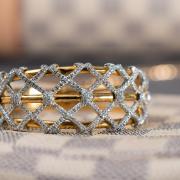These days we are often extolled to cover up and keep out of the sun, but a modicum of sunshine certainly has its benefits, and without it, problems can be caused...
Being of the pale and interesting variety, I was brought up to avoid the sun, and only ventured out with the protection of sun block, a hat and long sleeves. Past campaigns by the government, health professionals and skin cancer charities made sunbathing a guilty pleasure and childhood sunburn a form of child abuse. But there is now a wealth of evidence to suggest that sunshine may be one of the most important health panaceas.
The most important benefit of sunshine comes from vitamin D, produced in the skin by the action of ultraviolet light. Most people are aware of the importance of this vitamin in promoting bone mass and preventing osteoporosis, but it is the other benefits that have recently been hitting the headlines. A review of 18 trials, with a total of 57,000 subjects, found a 7% lower risk of death in people who took vitamin D during the six years of the trial. That is highly significant, and also worrying as vitamin D deficiency is on the rise. It cannot be adequately sourced from the diet, so we need either sunshine or supplementation. When I was studying medicine, childhood rickets (due to vitamin D deficiency) was a disease of the past; in the last few years, it has been making a comeback, particularly in the Asian community.
Vitamin D - helps reduce heart attack incidence
Vitamin D has an important part to play in reducing the risk of heart disease, and studies suggest that supplementation may reduce the risk of dying from this by up to 31%. There is a higher incidence of heart attacks during the winter, and an increased risk in the north compared to the south of the UK. In the absence of sunlight, cholesterol is formed in the skin, and we have a higher cholesterol level in the winter compared to the summer.
The anti-cancer effects of vitamin D are also interesting. Apart from melanoma (the dangerous form of skin cancer), the incidence of most other cancers actually increases the further one goes from the equator. Some studies have suggested that vitamin D could possibly halve the risks of breast and bowel cancer, for example.
Vitamin D also improves glucose tolerance, and is thus a significant tool in preventing diabetes. Additionally, this vitamin may reduce the risks from rheumatoid arthritis, multiple sclerosis, the common cold and flu.
Lifting the mood
The benefits of sunshine don't end there: it also has the effect of lifting our mood, an effect attributable to seeing bright light. Thousands of people suffer from winter depression (seasonal affective disorder) every year and many use a light box in the winter.
Recommended dosages?
So how much sunshine or vitamin D do you need? The answer depends on your skin type, with darker skins needing more sun exposure than paler ones. The official guide is to have daily sun exposure for up to a quarter of the time in which your skin would start to go pink. So if you go pink in an hour, you should have 15 minutes in the sun. Most Caucasians typically need about 30 minutes' sun exposure a day to an area equivalent to exposed face, neck and arms. Burning still needs to be avoided, as this is a risk for skin cancer; however, the incidence of melanoma is very small, whereas that of heart disease, diabetes and other cancers is high.
Even a factor 8 sunscreen reduces the ability of the skin to produce vitamin D by 95%. You may still wish to wear a hat, to prevent wrinkles on the thin facial skin, especially around the eyes, but try to gain sun exposure elsewhere. If, like me, you burn easily, aim for a small amount of unprotected sun exposure on the days when you are only out for a short period (15-30 minutes), but cover up or wear sun cream if you are going to be in the sun for longer periods.
In the winter, consider taking a vitamin D supplement, but stop it during the summer. D3 is the best type, at a dose of 1000iu daily; this is the dose currently thought necessary to prevent cancer. Anyone who has sarcoidosis, hyperparathyroidism, kidney disease, or who takes diuretic or calcium channel blocker drugs should seek professional advice before starting it.
Remember that half an hour of summer sun produces far more than the suggested supplement dose of 1000iu; so enjoy it while you can, and feel virtuous at the same time.
DR ROWENA NICHOLSON
Dr Nicholson has trained in General Practice, Allergy, Nutritional and Environmental Medicine and in Complementary Medicine. She is a partner at The Centre for Balanced Medicine in Chudleigh and can be contacted on
(01626 854743 or via www.balancedmedicine.co.uk.


























